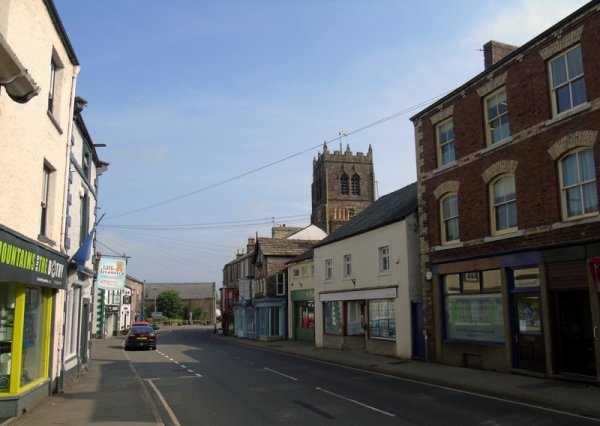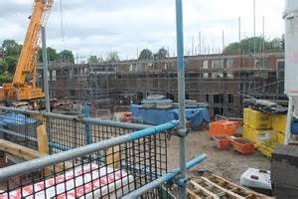Jun 21st 2023, 15:34
Blog - 21st June 2023
In this blog I consider the Kirkby Stephen Town Council and the National Association of Local Councils’ representations to the government on the Infrastructure Levy.
Last month I was elected to Kirkby Stephen Town Council. It is a non-party-political Town Council so all the candidates and councillors stand and sit as themselves rather than as party representatives. This year we had a contested election – that is unusual – and I was one of the nine successful candidates.

Kirkby Stephen
Kirkby Stephen Town Council’s website describes Kirkby Stephen as follows:
“A traditional market town of historic buildings, cobbled yards, quaint corners and interesting shops, ideally located in the beautiful Upper Eden valley, formerly the old county of Westmorland, now Cumbria. This is an area of Cumbria much less well known than the Lake District, but equally appealing. It is surrounded by a landscape of pastoral rural scenery and wild uplands and offers breathtaking views in every direction and has been part of the Yorkshire Dales National Park, since 2016. Remotely located from large towns and population centres, Kirkby Stephen has developed a strong and self-sufficient identity and a vibrant sense of community.”
It describes the Town Council as follows:
“An active and forward thinking Council which represents and serves the local community. The Town Council aims to respond to the needs and aspirations of the people it represents and to undertake work which benefits the town and its residents. It is also active in addressing local issues, dealing with any problems which arise and generally ‘getting things done!’.”
Services that the Town Council provides include a Community & Council Centre; an Information Centre; a weekly Market with a Charter that dates back to the fourteenth century; Environmental services including parks, street cleaning, street lighting and grounds maintenance; support for the town’s bus services; and grants to community organisations. Both the Town Council and the principal local authority – Westmorland & Furness Council – are committed to further devolution of responsibilities to the Town Council. This means that, Kirkby Stephen Town Council, in common with other town councils across England, will have an increasing role to play.
Kirkby Stephen Town Council’s website can be viewed by clicking here.
In my election address I said that:
“The Town Council has a massive role in our community both through the services that it provides and through the influence that it has on other public, private and voluntary bodies.
“Kirkby Stephen is a wonderful place to live but I think the Town Council could and should be making it even better. I would like to join the Town Council so that I can play a part in that.
“Issues that the Town Council should consider tackling include:
My election address can be viewed or downloaded by clicking here.
Meanwhile, the National Association of Local Councils has urged the government to ensure that local (parish and town) councils, with or without a made neighbourhood plan, receive proper receipts from the new Infrastructure Levy.
In its response to the Department for Levelling Up, Housing and Communities technical consultation on the Infrastructure Levy, the National Association of Local Councils argued to the government that local councils without a made neighbourhood plan should receive 25% of receipts and that local councils with a made neighbourhood plan should receive 35% of receipts. They are also calling for new local councils to be created everywhere so they can receive the neighbourhood share of the money instead of unelected community bodies.

Building Site in Ashfield, Nottinghamshire.
The National Association of Local Councils argues that:
The National Association of Local Councils’ response can be viewed or downloaded by clicking here.
My next webinar will be on ‘How to Register a New Registered Provider (Housing Association)’. It will be held on 20th July 2023. For further information or to register, please click here.